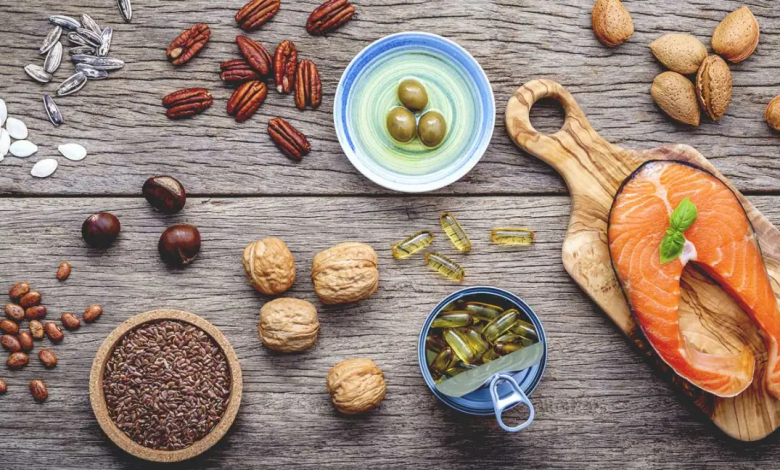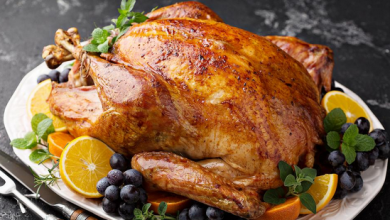Wellhealthorganic.com:vitamin-e-health-benefits-and-nutritional

Wellhealthorganic.com:vitamin-e-health-benefits-and-nutritional-sources! Welcome to WellHealthOrganic.com, your go-to resource for everything health and wellbeing! Today, we’ll explore the intriguing world of Vitamin E and its wonderful health benefits Wellhealthorganic.com:vitamin-e-health-benefits-and-nutritional. Are you wondering about how this crucial vitamin might improve your health? You’ve come to the correct location!
In this post, we’ll go over all you need know about “wellhealthorganic.com:vitamin-e-health-benefits-and-nutritional-sources”. We’ll cover all from what Vitamin E is to why it’s important for maintaining a healthy lifestyle in a straightforward and understandable way.
So let’s go on this adventure together to discover the secrets of Vitamin E for a happier, healthier you!
What is the URL for “wellhealthorganic.com:vitamin-e-health-benefits-and-nutritional-sources” ?
“wellhealthorganic.com:vitamin-e-health-benefits-and-nutritional-sources” is a thorough resource that investigates the many health benefits and nutritional sources of Vitamin E.
Essentially, it is a source that gives helpful details on how Vitamin E can help your health and where to get it in your diet.
Whether you’re wondering about the benefits of Vitamin E or want to include it into your everyday meals, this article will help you learn all there is to know about this crucial vitamin.
Why is the URL “wellhealthorganic.com:vitamin-e-health-benefits-and-nutritional-sources” important to you?
Essential Antioxidant Protection:
Vitamin E is a powerful antioxidant that protects your cells from free radical damage, lowering your risk of chronic illnesses such as cancer and cardiovascular disease.
Skin Health & Beauty:
Vitamin E is essential for keeping healthy skin since it promotes cell regeneration, moisturization, and UV protection, resulting in young, glowing skin.
Immunosystem Support:
Vitamin E boosts the immune system, allowing your body to resist against infections and diseases, keeping you healthy and robust year-round.
Heart Health Maintenance:
Vitamin E promotes heart health by limiting LDL cholesterol oxidation, lowering the danger of artery plaque development, and reducing the risk of cardiovascular disease.
Eye Health Enhancement:
According to studies, Vitamin E may help prevent age-related mascular degeneration and cataracts, supporting improved vision and eye health as you age.
Brain Function Improvement:
Vitamin E has been associated to increased cognitive function and a lower risk of cognitive decline in older persons, perhaps delaying the development of illnesses like Alzheimer’s disease.
Reproductive Health Support:
Vitamin E benefits both men and women’s fertility and reproductive health by protecting reproductive cells from oxidative damage and promoting hormonal balance.
Muscle Recovery and Repair:
Athletes and active people may benefit from Vitamin E’s ability to minimize exercise-induced oxidative stress, which aids muscle recovery and repair after severe exercises.
Hair Growth and Strength:
Vitamin E supports healthy hair development and strength by increasing blood circulation to the scalp, feeding hair follicles, and avoiding oxidative stress, which may cause hair loss.
Overall Well-Being Enhancement:
Incorporating vitamin E-rich foods into your diet will improve your overall health by encouraging vitality, energy, and longevity for a satisfying life.
Step-by-Step Guide for “wellhealthorganic.com:vitamin-e-health-benefits-and-nutritional-sources”
Understanding vitamin E:
Learn about Vitamin E and why it’s important for your health.
Investigate the many forms of vitamin E, including tocopherols and tocotrienols.
Understand how Vitamin E works as an antioxidant in the body.
Health Benefits of Vitamin E:
Discover the multiple health benefits of Vitamin E usage.
Investigate its function in protecting cells from oxidative stress and lowering the risk of chronic disease.
Discover how Vitamin E improves heart health, skin health, immunological function, cognitive function, and more.
Nutritional Sources of Vitamin E:
Identify natural sources of Vitamin E, such as fruits, vegetables, nuts, seeds, and oils.
Learn how to include vitamin E-rich foods in your regular diet for maximum health benefits.
Understand the necessity of eating a well-balanced diet to ensure enough Vitamin E intake.
Recommended Daily Vitamin E Intake:
Discover the recommended daily amount (RDA) of Vitamin E for various age groups and genders.
Understand the variables that might influence Vitamin E needs, such as age, pregnancy, and certain medical conditions.
Consult with a healthcare practitioner to evaluate your specific Vitamin E requirements.
Supplementing with vitamins E:
Consider taking vitamin E supplements to satisfy your daily needs.
Understand the many types and doses of Vitamin E supplements available on the market.
Before beginning any new supplement treatment, consult with your healthcare professional.
How to Cook and Store Vitamin E-Rich Foods:
Cooking techniques including steaming, roasting, and sautéing retain the Vitamin E content of foods.
Understand how to properly store vitamin E-rich foods so that they retain their nutritional worth.
Discover recipes that use Vitamin E-rich items to create tasty and healthy meals.
Monitor Vitamin E Levels:
Learn how to check your Vitamin E levels using blood testing and other diagnostic tools.
Learn about the symptoms of vitamin E shortage and excess.
Consult a doctor if you have questions about your vitamin E stages.
The advantages and disadvantages of advantages and nutritional sources” are as follows:
Pros and Cons.
Comprehensive Information: Provides in-depth knowledge on Vitamin E, including its health advantages, dietary sources, and suggested intake levels.
Potential material Overload: The large amount of material offered may overload some readers, making it difficult to grasp all of the intricacies.
Health Education: Provides readers with essential health data, allowing them to make educated decisions regarding their nutrition and general well-being.
Individual Variability: Nutritional requirements differ from person to person, and what applies to one individual may not work for another, necessitating individualized changes.
Promotes Health and wellbeing: Encourages people to put their health first by including Vitamin E-rich foods into their diet, which leads to better overall wellbeing.
Lack of Personalization: The guide may not provide individualized suggestions based on particular health issues or dietary restrictions, requiring extra contact with healthcare specialists.
Supports Disease Prevention: Increases awareness of Vitamin E’s antioxidant qualities, which may help avoid chronic illnesses including heart disease, cancer, and cognitive decline.
Supplement Safety problems: While supplements may be useful, there are possible safety problems related with over consumption or drug interactions that need care and oversight.
Practical Guidance: Explains how to get Vitamin E from natural food sources, supplements, and culinary techniques, making it accessible to everybody.
Focus on Natural Sources: While increasing natural sources of Vitamin E is good, some people may struggle to achieve appropriate quantities via diet alone, requiring supplementation.
Encourages Balanced Nutrition: Promotes optimal nutrition for better health outcomes by highlighting the importance of a balanced diet that includes Vitamin E-rich foods.
Skin and Hair Health are Promoted: Highlights Vitamin E’s advantages to skin and hair health, such as its ability to hydrate, protect against UV damage, and encourage hair growth.
Misinterpretation of Information: With so much information accessible, there is a possibility of misinterpretation or misunderstanding, which may lead to poor dietary choices or unrealistic expectations about Vitamin E’s advantages.
Long-Term Well-Being: Promotes long-term lifestyle choices that emphasize health and wellbeing, resulting in higher quality of life and longevity.
Potential Cost Considerations: Incorporating Vitamin E-rich foods or supplements into one’s diet may entail extra expenditures that are prohibitively expensive for those on a limited budget or with financial restrictions.
Frequently Asked Questions (FAQ)
Q: Are there any hazards involved with taking too much Vitamin E?
A: While Vitamin E is typically regarded safe when ingested in regulated doses, taking too many supplements might cause digestive problems and an increased risk of bleeding. It is important to follow dose instructions and get advice from a healthcare expert if you have any concerns.
Q: How can I add additional Vitamin E to my diet?
A: To improve your Vitamin E consumption, include more Vitamin E-rich foods in your meals and snacks. Try adding nuts and seeds to salads, cooking with vegetable oils, and eating fruits and vegetables every day.
Q: Can Vitamin E enhance the look of my skin and hair?
A: Vitamin E is well-known for its skin and hair-related benefits. It moisturizes the skin, protects against UV damage, and promotes hair development. Including foods high in Vitamin E in your diet will help you achieve better skin and hair over time.
Q: What is Vitamin E, and why is it crucial to my health?
A: Vitamin E is a potent antioxidant that protects our cells from free radicals. It is essential for keeping healthy skin, a robust immune system, and general well-being.
What are my diet’s main sources of Vitamin E?
A: Vitamin E is present in a variety of foods, including nuts (almonds and peanuts), seeds (sunflower seeds), vegetable oils (olive oil and sunflower oil), leafy green vegetables (spinach and broccoli), and fruits (avocado and kiwi).
Q: How much Vitamin E do I need each day?
Vitamin E suggested daily consumption varies based on characteristics like age, gender, and general health. The recommended daily allowance of Vitamin E for human beings is 15 milligrams. However, for individualized suggestions, speak with a healthcare practitioner.
Q: Can I receive enough Vitamin E from my diet alone, or do I require supplements?
A: While a well-balanced diet rich in Vitamin E-containing foods may fulfill your needs, some people may benefit from supplements, particularly if they have certain health issues or dietary limitations. Before beginning any new supplement regimen, you must contact with your healthcare physician.
Conclusion
In summary, “wellhealthorganic.com:vitamin-e-health-benefits-and-nutritional-sources” provides useful information on the relevance of Vitamin E for overall health.
By learning its advantages and origins, readers may make more educated decisions to improve their well-being.
While the book offers useful suggestions, it is critical to speak with healthcare specialists for individualized recommendations.
Despite these limits, including Vitamin E-rich foods in your diet may lead to considerable health benefits. Begin your road to improved health now!
Vitamin E for overall health Tips:
Combination With Other Nutrients:
To improve absorption and optimize the antioxidant advantages for your body, pair Vitamin E-rich meals with Vitamin C sources, such as citrus fruits and bell peppers.
Consumption with Mindful Awareness
While Vitamin E is important, remember that balance is essential. Aim for a diverse diet that contains a variety of nutrients, and avoid depending entirely on Vitamin E supplements to meet your nutritional demands.
Monitor Changes:
Pay attention to how your body reacts to dietary changes, such as increased Vitamin E consumption. As you integrate more Vitamin E-rich foods into your diet, you may notice an increase in your energy levels, skin health, and general well-being Wellhealthorganic.com:vitamin-e-health-benefits-and-nutritional.
Enjoying Food:
Accept the joy of eating healthful foods high in Vitamin E. Experiment with new dishes and tastes to make meals more fun and rewarding while also feeding your body from inside.
Community and support:
Consider joining online forums or support groups that promote healthy eating and wellbeing. Surrounding oneself with like-minded people may give support, motivation, and vital ideas for eating a well-balanced diet rich in key nutrients such as Vitamin E.
Cooking Tips:
To retain the nutritional value of oils high in Vitamin E, such as olive oil, avoid warming them. Use moderate cooking techniques such as sautéing or pouring over salads.
Storage recommendations:
Vitamin E-rich foods should be stored correctly to keep them fresh and nutritious. Keep nuts and seeds in sealed containers in a cold, dark area, and use oils before they expire for the best results.
Daily Habits:
Add a handful of nuts or seeds to your morning cereal, spread avocado on toast, or drizzle olive oil over cooked veggies to obtain your daily Vitamin E intake.




